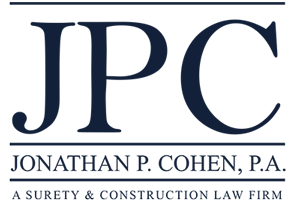Navigating Florida’s construction laws can be challenging, especially for out-of-state contractors who are unfamiliar with the intricacies of lien rights and the strict deadlines imposed by Florida’s Construction Lien Law (Chapter 713, Florida Statutes). Missteps in this area can result in the loss of valuable lien rights, extended litigation, or even project delays. This comprehensive guide will help contractors—particularly those new to doing business in Florida—understand their rights, obligations, and how to protect their financial interests.
What Is a Construction Lien in Florida?
A construction lien, also known as a mechanic’s lien, provides contractors, subcontractors, material suppliers, and certain professionals the legal right to claim an interest in the property they improved, as security for unpaid labor or materials. In Florida, this process is governed by Chapter 713 of the Florida Statutes, which imposes strict procedural requirements.
Failure to adhere to these procedures often leads to the loss of lien rights, as established in Stunkel v. Gazebo Landscaping Design, Inc., 660 So. 2d 623 (Fla. 1995), where the Florida Supreme Court reiterated that the lien law must be strictly followed because it is in derogation of the common law.
Pre-Lien Requirements: Notice to Owner (NTO)
One of the most common pitfalls for out-of-state contractors is missing the Notice to Owner (NTO) deadline. Unless the contractor has a direct contract with the property owner, Florida law requires that a Notice to Owner be served no later than 45 days after beginning work or delivering materials.
Tip: The notice must be received by the owner, not merely sent, within that 45-day window. A contractor who fails to properly serve the NTO may forfeit their lien rights entirely.
Recording the Claim of Lien
Once work is completed or the contractor is unpaid, a Claim of Lien must be recorded in the county where the property is located within 90 days of the final furnishing of labor, services, or materials.
Failure to strictly adhere to the 90-day deadline—as reaffirmed in Ceco Concrete Construction, LLC v. Gaylor Const., Inc., 46 So. 3d 1300 (Fla. 1st DCA 2010)—results in the lien being invalid and unenforceable.
Important: The lien must also be served on the owner within 15 days of recording.
Foreclosure of Lien: Timing Matters
To enforce a lien, a contractor must file a lawsuit to foreclose the lien within one year of recording it. However, if the property owner serves a Notice of Contest of Lien, that one-year period is reduced to 60 days. Similarly, if the owner files a Summons to Show Cause, the deadline is shortened to 20 days from service.
Missing these deadlines is a costly mistake, as your lien rights are extinguished and unrecoverable.
Licensing Requirements: A Trap for Out-of-State Contractors
Florida is strict about licensing. Under §489.128, a contractor who is not properly licensed at the time of contract execution cannot enforce a construction contract or lien.
In Earth Trades, Inc. v. T&G Corp., 108 So. 3d 580 (Fla. 2013), the Florida Supreme Court held that an unlicensed contractor has no legal right to enforce a lien or seek payment—even if the work was otherwise satisfactory.
Out-of-state contractors must ensure they are properly licensed by the Florida Department of Business and Professional Regulation (DBPR) before bidding or entering into contracts.
Waivers and Releases: Know What You’re Signing
Another common area of confusion involves lien waivers and releases. Florida Statutes require specific forms under §713.20. Conditional and unconditional waivers must be carefully reviewed, especially when linked to partial payments. Contractors who sign a full waiver too early may unintentionally give up rights to future payment.
Why Out-of-State Contractors Should Work With a Florida Construction Lawyer
Given the strict timelines, complex paperwork, and regulatory requirements, even experienced contractors can inadvertently make costly mistakes when working in Florida. For out-of-state contractors unfamiliar with these laws, the risks are even higher.
Partnering with a knowledgeable Florida construction lawyer can ensure that your lien rights are protected from day one. From preparing compliant notices and waivers to filing liens and pursuing enforcement, experienced legal counsel is invaluable.
About Jonathan P. Cohen, Esq.
Jonathan P. Cohen, Esq., is a seasoned Florida construction lawyer based in Fort Lauderdale with a proven track record of representing contractors, subcontractors, suppliers, and property owners in lien-related matters. At Jonathan P. Cohen, P.A., the firm offers strategic legal guidance and litigation support tailored to the needs of construction professionals, including those new to the Florida market.
Whether you are working on your first Florida project or expanding your operations statewide, Jonathan P. Cohen, P.A. can help you stay compliant and avoid unnecessary legal pitfalls.
Contact a Florida Construction Lien Lawyer Today
If you’re an out-of-state contractor navigating Florida’s lien laws, don’t go it alone. Contact Jonathan P. Cohen, P.A., an experienced Florida Construction Lien lawyer, to safeguard your rights and get paid for the work you do.
Call us today at 954-462-8850 or visit www.jcohenpa.com to schedule a consultation and ensure your next Florida project starts on solid legal ground.
The information provided in this article does not, and is not intended to, constitute legal advice. The content in this article is presented for general informational purposes only.

